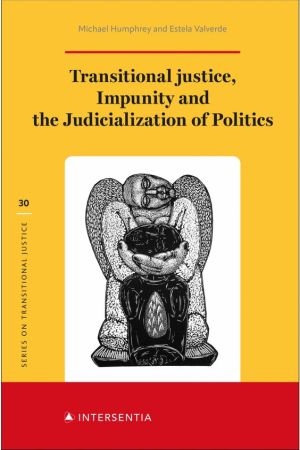
Over the past 40 years, transitional justice has evolved to become a UN-endorsed international norm, underpinning peacemaking and democratic transition after large-scale political violence. The judicialization of political conflict now dominates strategies to end violence and produce a durable peace.
A unique approach of this book is to use comparative case studies of political transitions in Uruguay, Lebanon, Spain, Kenya and Colombia to illustrate the historical development of transitional justice which gradually extended the reach of international human rights law to manage political transitions, thereby limiting impunity. Through these case studies, the book shows how transitional justice intervention has been shaped by distinct histories of conflict, elite pactism and transitional jurisprudence.
The originality of this book lies in its theorization of transitional justice as a generative lawmaking project. It draws on legal, sociological and anthropological theory to analyse truth and justice measures as hinge legal rituals designed to re-establish legal norms and generate community consensus – communitas – through participation. These performative legal rituals are supposed to produce lasting effects – justice, the rule of law, inclusion, reconciliation – but they frequently stall. Judicial processes are undermined, the hoped-for consensus about responsibility for past injustice fails to materialize, or governments lack the political commitment to fully implement transitional justice measures. Ultimately, the book shows how the aspirations and promise of transitional justice measures to achieve justice and peace are in fact never complete because the past is always restless.